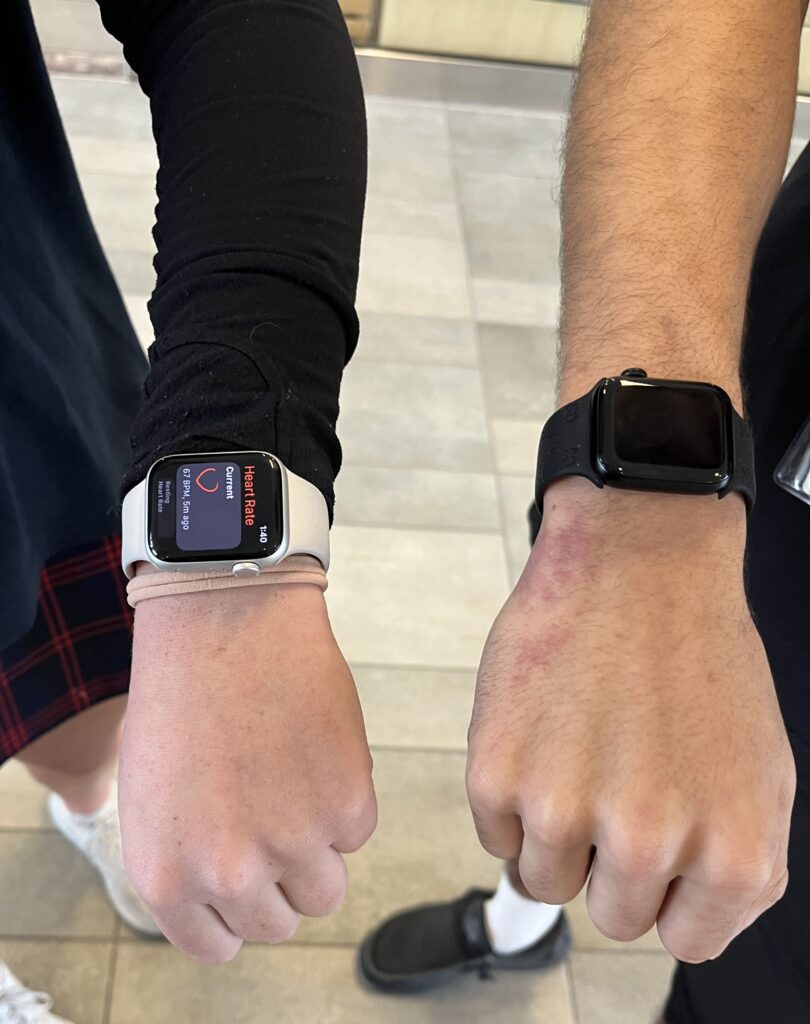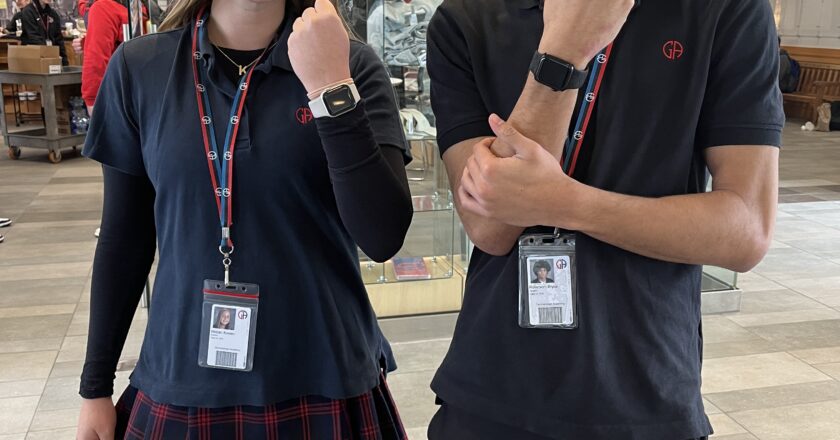In October of 2023, the United States International Trade Commission (USITC) ruled that Apple’s latest watches, the Apple Watch Series 9 and the Apple Watch Ultra 2, would not be allowed to be imported into the US for copyright infringement. The heart rate monitor is the culprit for the ruling, as Masimo, a medical technology company, owns the patent.

Masimo’s blood oxygen sensor uses lights to measure your heart rate, a process known as photoplethysmography, and, despite sounding complicated, it is quite simple. Apple reports oxygen changes the color of your blood, bright red blood is oxygenated while darker blood is not.
The watch uses green light to measure the color of your blood because the red blood will absorb the green light. When your heart beats, the color becomes a brighter red, causing greater absorption, and between beats, it’s darker, where there is less absorption.
The Trade Commission is a federal agency that handles trade mandates inside the United States. However, this ruling is still being determined and has to go through a series of vetos, including the president and a series of courts, where parties can appeal the ban.
The President had 60 days from the time of the USITC’s ruling to overrule the ban, and that date passed on Dec. 26. This is not unusual as the president rarely overrules the USITC’s decisions. After that date, Apple immediately filed an appeal for the ban.
The appeal court temporarily lifted the ban, a win for Apple. Apple began selling the watches in the US. The condition for the ban is that Apple would have to rework its heart rate monitor for a trial on Jan. 15, 2024.
“I think it’s a shame that a large company like Apple can push around smaller companies and get their way all the time,” Max Kopp ‘26 said. “Smaller companies should have equal rights when it comes to representing their product.”
According to Bloomberg, a news company based around business, Apple is scrambling to update the software of the Apple Watch’s blood sensors to avoid the ban from the US patent dispute. If the software change can appease the ITC, the Apple Watch will remain on the shelves.
However, this is not the first time Masimo and Apple have come into legal arguments. According to NPR and court documents covering patent disputes, in 2013, a similar dispute occurred with no resolution. Later, Apple began hiring Masimo engineers, paying them greater wages. Masimo has responded with legal actions against Apple under the claim of poaching employees. Apple responded by denying those claims and no action was taken.
While Apple did infringe on Masimo’s patent, little action has been taken. Large corporations are often so large that sometimes even the law has trouble keeping businesses in place.

